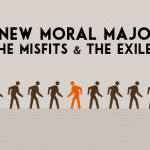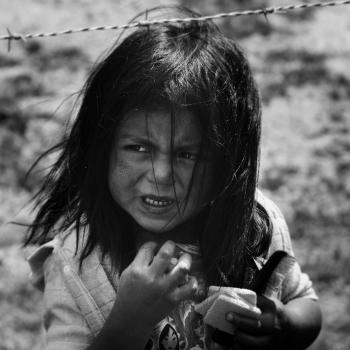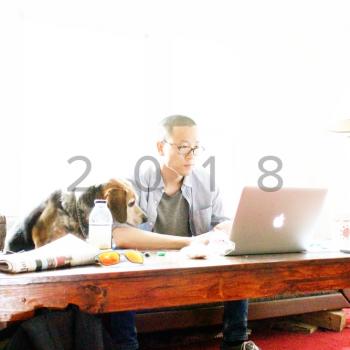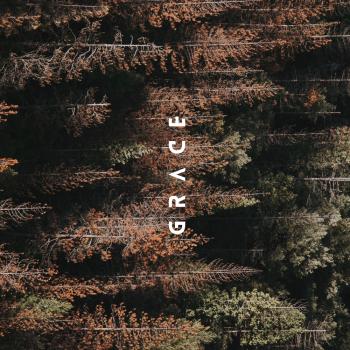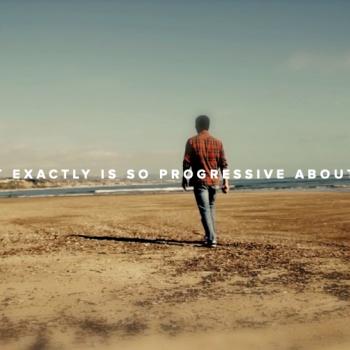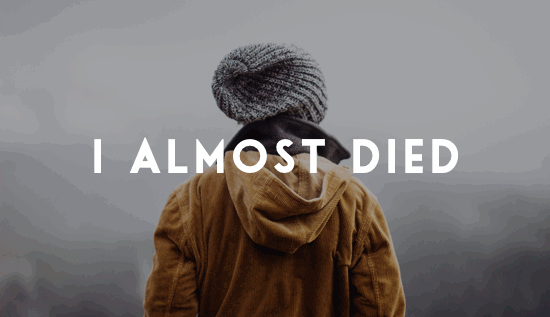
I almost died. Not really, but kind of…
If you by any chance follow me on Snapchat, and I say that mostly so you’ll follow me on Snapchat [itsandygill], then you know that this past week I was in the hospital. I went in for chest pains, shortness of breath, a racing heart, and a dull pain in my jaw; you know, all the signs in which would tell someone you’re about to die or, at my age, having a panic attack.
Turns out, it was neither.
But as I was laying there on a bed in the ER, for hours on end, my phone died and for the first time in a really long time, I did nothing; dozing in and out of sleep when the doctor(s) or nurse(s) came to check on my vitals.
In the past year when friends asked me how I was doing I would usually respond, “Busy.” What I really meant by this was, “Depressed. Anxious. Cranky. Go away.” The result of elongated periods of isolation is the perpetuation [not cause] of an anxiety and depression so toxic it will lead to a trauma so serious that it will eventually and inevitably kill you, li-tra-ly.
In fact, research shows those suffering from trauma, any kind of it really, are twice as likely to be diagnosed with cancer, twice as likely to have heart disease, twice as likely to have liver disease, four times as likely to suffer from emphysema or chronic bronchitis. And this is not even including the overwhelming statistics showing the likelihood of attempted suicide [36x’s higher] and drug addiction [46x’s higher] by those suffering from trauma in order to temporarily, or in the case of suicide permanently, escape their traumatically depressing reality.
Because, who wants to feel that dull sense of pain that is an inexorable symptom of a stigmatizing depression?
This is getting sad, it’s supposed to be a happy-go-lucky break through feeling type of blog post, either way…
For too many of us, it’s not that we’re avoiding thinking so much as we’re avoiding the necessary act of feeling. I didn’t turn to drugs or suicide, instead my drug of choice, like many other’s who suffer from being “type-a,” was busyness.
That’s right, like 90% of America, I inundated my life with work. The past 2.5 years I’ve consistently and unnecessarily been busy. It’s been this self-inflicted delusional belief in that treading water for an elongated period of time is somehow productively moving me forward, towards the direction of my life’s goals.
“The more relaxed you are, the better you are at everything…” pic.twitter.com/X0FdfNkdxp
— andy gill (@itsandygill) July 2, 2015
Luckily, I’ve begun to see that my recent drive and unhealthy obsession with details, emails, calendars, and events is not a symptom of my personality, being type-a, but a result of super racist ignoramus’ a toxic environment.
I was caught in a cycle of hanging out with the same type, just in the form of different persons. We have this self-induced delusion of sorts, in that being busy, doing the same thing in different ways, treading water, running in circles, and/or consistently numbing, is somehow going to cure our problem(s) or drastically alter our circumstances.
Doing nothing, not “working,” isn’t a luxury so much as it’s a necessity; just as community is vital for healing I think that intentional idleness is vital to living [well].
Similarly, working has been something I’ve been viewing as an medicine as opposed to an opiate. It’s counter intuitively a paradox in the sense that, as Tim Kreider says best,
“It’s hard to find anything to say about life without immersing yourself in the world, but it’s also just about impossible to figure out what it might be, or how best to say it, without getting the hell out of it again.”
I said to a recent mentor and friend, “I need to drink more. And by ‘drink more’ I mean be more social, let loose, have fun…” I need to not work, relax, breathe and just for a moment allow myself the room to be.
These last couple of days, chosen or not, was a spoke in my wheel stopping a vicious cycle giving me enough time and energy to see outside of this cycle that there’s, in fact, the existence of a benign circle. It was an unexpected, yet refreshing, time of nothingness; space in which I could unwind from a neurotic sickness of self-inflicted busyness.


